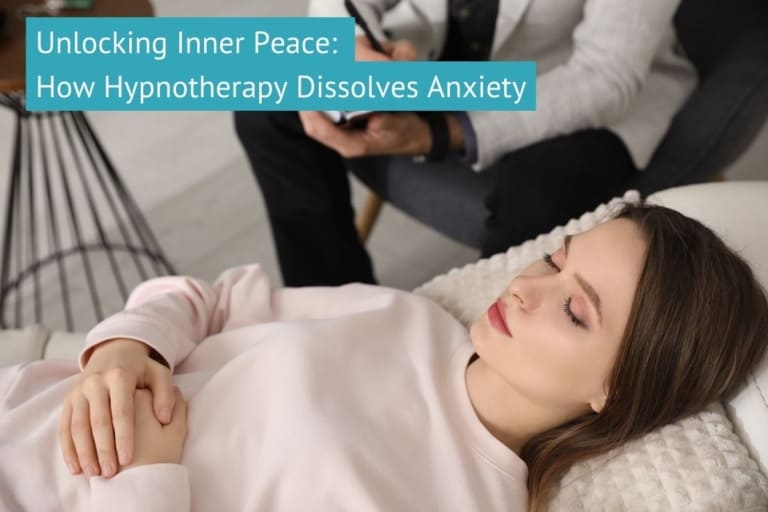Anxiety disorders affect millions of people all over the world. Anxiety in one form or another can make up half a working week for a therapist so it should come as no surprise that so many people suffer from it at some point in their lives.
Hypnotherapy can help alleviate anxiety symptoms by harnessing the power of the subconscious mind. According to a study published in the American journal of clinical hypnosis, the subconscious mind plays a pivotal role in anxiety regulation, as it houses deeply ingrained thoughts, emotions, and beliefs that often underlie anxious feelings and behaviors (Yapko, 2001).
By guiding individuals into a relaxed state, hypnotherapy enables them to explore and reframe negative thought patterns and fears rooted in the subconscious, facilitating profound and lasting changes. Rewiring neural pathways and helping a client change how they see their issue.Anxiety often triggers automatic and exaggerated responses to perceived threats, leading to a cycle of fear and avoidance.
Clinical hypnosis, when used correctly, can modify these responses by actually rewiring neural pathways associated with anxiety! Research conducted by Barnier and colleagues (2017)
demonstrated that hypnotherapy can reduce anxiety by altering brain activation patterns and promoting more adaptive cognitive processes. Through suggestion and visualization techniques, individuals can learn to replace anxious thoughts and reactions with more constructive and calm responses, effectively breaking free from the grips of anxiety.
Hypnotherapy serves as a valuable complementary approach to conventional treatments for anxiety disorders.
In a systematic review and meta analysis published in the International Journal of clinical and experimental Hypnosis, hypnotherapy was found to significantly reduce anxiety symptoms when used in conjunction with other therapies, such as CBT (Kirsch et al., 2018). By incorporating hypnotherapy into a comprehensive treatment plan, individuals can benefit from its unique ability to access the subconscious mind and enhance the effectiveness of other therapeutic modalities.
Anxiety can often stem from underlying causes, such as unresolved trauma or deeply rooted emotional issues. Hypnotherapy offers a safe and supportive environment for individuals to explore and heal these underlying factors.
A study published in the International journal of clinical and experimental hypnosis found that clinical hypnotherapy effectively reduced anxiety symptoms in individuals with a history of trauma by facilitating emotional processing and promoting resolution (Jensen et al., 2019).
By addressing the root causes of anxiety, hypnotherapy can provide long lasting relief and contribute to overall psychological wellbeing. One of the main and most useful benefits of hypnotherapy is its ability to induce deep relaxation and alleviate stress, an integral aspect of anxiety management.
Proper clinical hypnosis can significantly reduces anxiety and stress levels by promoting a state of calmness and relaxation. Through guided imagery, breathing exercises, and relaxation techniques,hypnotherapy helps people learn invaluable skills to manage stress and anxiety in their daily lives.
By accessing the subconscious mind, rewiring neural pathways, addressing underlying causes, and promoting relaxation, hypnotherapy offers a holistic and integrative approach to anxiety relief.
As a standalone treatment, hypnotherapy holds the potential to empower individuals in their journey towards overcoming anxiety and reclaiming their well-being.
As you can see, there is a wealth of evidence that shows how a professional hypnotherapist can help you overcome your anxieties, and get your life back.
Garry Webster has been a professional hypnotherapist since 2001. He is passionate about helping people improve their mental health after suffering with his own in the past.

